Pio Cesare Ornato Nebbiolo 75 cl.
 D.O.C.G. Barolo, Piemonte, Italy.
D.O.C.G. Barolo, Piemonte, Italy.![]() Nebbiolo.
Nebbiolo.![]() Red wine Bottle, 75 cl.
Red wine Bottle, 75 cl.
 EUR, Final price!
EUR, Final price! Delivery
Delivery  January Wednesday 1 - Thursday 2
January Wednesday 1 - Thursday 2 FREE SHIPPING!
FREE SHIPPING!| Producer | Pio Cesare. |
| Name | Ornato. |
| Variety |
|
| Country of origin |
 Italy. Italy.
|
| Region of origin |
 Piemonte. Piemonte.
|
| Appellation of origin |
 D.O.C.G. Barolo. D.O.C.G. Barolo.
|
| (UE)401/2010 Certification |
Denominazione di Origine Controllata e Garantita (D.O.C.G.) D.O.C.G. Barolo. |
| Production region | The production region of D.O.C.G. Barolo is located in La provincia de Cuneo, en la región de Piemonte, Italia. |
| Weight | 1.500 gr. (1,5 Kg.). |
| Typology |
Red wine. D.O.C.G. Barolo. |
| Variety |
|
| Vintage / Harvest |
Currently marketed by the producer.
|
| Format | Bottle. |
| Capacity | 75 cl. |
| Alcohol content | 14.5% Vol. |
| Weight | 1.500 gr. (1,5 Kg.). |
| Product reference | WAN4559523 |
| Actual price | 109,95 € . This product is currently not available. |
| Storage position | Lateral position, horizontal bottle. |
| Storage temperature |
Store at a constant temperature between 10-17ºC. Humidity should be constant around 60-80%. |
| Recommendations | Keep preferably away from light. |
| Visual tasting note | Carmine color, Blue, Great intensity, Thin ruby edge. |
| Olfactory tasting note | Red berries, Roasted chocolate, Native plants, Forest notes. |
| Tasting note | Well bred, Final sweet sensation, Fruity finish, Mild flavors. |
| Recommended pairing | Italian pasta, Barbecued red meat, Meals with mushroom sauces. |
| Consumption temperature | 16ºC - 18ºC. |
| Consumption | It is recommended to drink in moderation and demonstrate a responsible consumption of alcoholic beverages. |
| Please keep in mind |
The information provided and referred to the product features and details has been provided by the expert, manufacturer or producer or published on the official sites. In no case can it be considered as assessment made by our team, unless expressly stated otherwise. We suggest you to refer to the comments and reviews posted by our customers and users to expand and contrast this information. |
| Misreading |
Our team provides this information and details in ESPAÑOL language. If you browse in another language note that the information contained may have been translated from the original language through an automated real-time process that has not been supervised by our human team. In case of doubt, misunderstanding or misreading about the content of this information you should refer to the original version of this page or contact our customer service team. |
| Product image |
The product image or its label is only relevant for graphic purposes, so it may not match the identification of the vintage or other features and details of the product for sale. This product is provided in the conditions and format in which it is marketed at the current time. This product is not identified or supplied in a specific vintage. The product image and label may not match the vintage identification or other characteristics and details of the product for sale. |
| Legal Notice |
It is against the law to sell or supply alcohol to, or to obtain alcohol on behalf of a person under the age of 18 years. If you are not more than 18 years old, you must leave this website. |
Selection by «Message in a Bottle®»
Red Wine. Premium Edition MBS Reserva. Customizable label.
No customer reviews at this time. Be the first to post a review!
Product Selection by Pio Cesare.
15 Products, The best selection by Pio Cesare.
Pio Cesare Ornato Nebbiolo 75 cl.
Additional information.

|
«Pio Cesare Ornato Barolo» is produced by Pio Cesare. «Pio Cesare Ornato Barolo» is monovarietal, made only with the grape variety Nebbiolo, 100% Nebbiolo. «Pio Cesare Ornato Barolo» is a product from Italy. The production region of «Pio Cesare Ornato Barolo» is Piemonte. It is certified with D.O.C.G. Barolo. The production region of D.O.C.G. Barolo is located in La provincia de Cuneo, en la región de Piemonte, Italia. The weight of «Pio Cesare Ornato Barolo» is 1.500 grams (1,5 Kg.). |
Appellation of origin:
D.O.C.G. Barolo.
Pio Cesare Ornato Nebbiolo 75 cl.
 Español [ ES ]
Español [ ES ]Denominazione di Origine Controllata e Garantita Barolo.
La DOCG Barolo es el sello que garantiza la calidad de un vino italiano, que se obtiene de la fermentación de uvas nebbiolo en sus variedades lampia, michet o rosé, y es, a menudo, descrito como uno de los grandes vinos de ese país. Toma su nombre de la noble familia Falletti, marqueses de Barolo, que iniciaron su producción en sus viñedos. Barolo es el nombre de un pueblo situado en la provincia de Cuneo, al sudoeste de Alba, dentro de la región del Piamonte y que da nombre a este extraordinario vino.
Enología.
Madura a fin de septiembre, su graduación alcohólica es de alrededor de 14-16 grados (con un mínimo de 12.5%) y el tiempo mínimo de añejamiento de 3 años (de los cuales dos deben ser en toneles de roble o castaño). Se elabora en las localidades de Barolo, Castiglione Falletto, Serralunga d'Alba y parte de las de Cherasco, Diano d'Alba, Grinzane Cavour, La Morra (Italia), Monforte d'Alba, Novello, Roddi, Verduno, todas en la provincia de Cuneo. Sólo los viñedos de colinas con pendientes y orientaciones apropiadas son considerados aptos para su producción, y los terrenos deben ser primordialmente arcillosos-calcáreos.
Se elabora exclusivamente con la variedad Nebbiolo y pasa por largas crianzas antes de salir al mercado. Los barolos son complejos, con gran concentración de fruta y de sabor, intensos taninos y acidez y alcohol elevados.
La guerra del barolo.
En el pasado los barolos solían ser muy ricos en taninos. Podían necesitarse más de 10 años para que el vino se suavizara y quedara listo para beber. La fermentación del vino se obtiene de las pieles de la uva durante al menos tres semanas, extrayendo grandes cantidades de taninos y luego es criado en grandes barricas de madera durante años. Con el fin de apuntar a los gustos internacionales actuales, que prefieren sabores y aromas más afrutados, con menos esperas y más fáciles de beber, varios productores comenzaron a reducir los tiempos de fermentación a un máximo de diez días y a criar el vino en barricas nuevas de roble francés. Los "tradicionalistas" han argumentado que los vinos producidos de esta manera no son reconocibles como barolo y saben más a roble nuevo que a vino. La controversia entre los tradicionalistas y los modernistas ha sido llamada la «guerra del barolo».
Red wine D.O.C.G. Barolo
Product Selection Red wine D.O.C.G. Barolo.
Pio Cesare Ornato Nebbiolo 75 cl.
Variety:
Nebbiolo.
Pio Cesare Ornato Nebbiolo 75 cl.
 Español [ ES ]
Español [ ES ]Origen.
Hay varias teorías sobre el origen del nombre de esta uva, una sería la palabra nebbia, que significa “niebla”, y hace referencia a la que se postra sobre las colinas de la región del Langhe, en el noroeste de Italia, durante el tiempo de la cosecha. Otra posibilidad sería por el velo lechoso, similar a la niebla, que crece sobre la piel de las uvas cuando alcanzan la madurez y, por último, es posible que derive de la palabra italiana nobile, que significa noble, por la nobleza de esta uva. Desde el punto de vista ampelográfico, el origen de la uva nebbiolo se sitúa en la región italiana de Piamonte, aunque otros autores la ubican en Lombardía. En el siglo I A.C., Plinio el Viejo describió la calidad excepcional del vino producido en Pollenzo, una región localizada al noroeste de lo que ahora es la zona DOCG de Barolo. Aunque Plinio no menciona explícitamente el nombre de la uva de la que se hacía el vino de Pollenzo, la descripción del vino guarda similitudes con las descripciones posteriores de los vinos basados en nebbiolo. La primera mención explícita a la nebbiolo data de 1268 donde se dice que la "nibiol" crecía en Rívoli, cerca de Turín. Posteriormente, en 1303, un productor del distrito de Roero dice tener un barril de "nebiolo”. En el tratado de 1304 titulado Liber Ruralium Commodorum, el jurista italiano Pietro Crescenzi describe el vino hecho de "nubiola" como de excelente calidad. Hay estatutos del siglo XV de la región de La Morra que demuestran la alta estima que se tenía a la nebbiolo, donde se imponían penas, que podían llegar a la amputación de la mano, por cortar viñas de nebbiolo. En el siglo XVIII hay noticias, por primera vez, de uva nebbiolo fuera del Piamonte, cuando los británicos, al no poder disponer de vino de Burdeos debido al conflicto que tenían con los franceses, recurrieron a vinos de esta variedad, aunque las dificultades que encontraban para llevar el vino desde Piamonte a Londres, hicieron que se decantaran por vinos de Oporto y de Jerez. La cantidad de viñedos de nebbiolo continuaron en crecimiento durante el siglo XIX, hasta que la filoxera los diezmó. Después de esto, muchos viticultores decidieron replantar sus terrenos con otras variedades de uva, lo que supuso que la extensión de nebbiolo se redujera, dando como consecuencia que, hoy en día, los viñedos de nebbiolo en Piamonte no alcanzan el 6%.
Características.
Esta cepa es muy caprichosa, por decirlo de alguna forma. Tiende a madurar muy tarde, cuando el clima en la región empieza a ponerse difícil. Es muy susceptible a las plagas y podredumbre. En la bodega es delicada, muy propensa a la oxidación, la cual cambia su color, y puede perder sus aromas frutales. Se debe tener mucho cuidado en su manejo desde el viñedo hasta que llega a la botella, pero cuando todos estos factores convergen en una perfecta armonía, el resultado final puede ser excepcional.
Zonas de cultivo.
La uva nebbiolo no es tan viajera como la merlot o la chardonnay; es decir, no la encontramos por todo el mundo. Fuera de su natal Italia, sólo en alguna parte de California, como por ejemplo en Napa Valley, y en el Valle de Guadalupe, en México, podemos probar cierta cantidad de vinos hechos con esta uva.
Vinos.
Esta variedad es autóctona es utilizada para crear dos excelentes vinos principalmente: el Barolo y el Barbaresco. Ambos son tipos de vinos y denominaciones de origen al mismo tiempo, los cuales pueden ser considerados como los mejores vinos de toda Italia. Los vinos elaborados con la variedad nebbiolo pueden requerir años de envejecimiento para equilibrar el nivel de taninos con otras características. Así, la nebbiolo produce vinos tintos de color claro que pueden contar con mucha cantidad de taninos en su juventud. A medida que el vino envejece, desarrolla matices a piel de naranja en el borde de la copa y madura para revelar otros aromas y sabores, como a violetas, alquitrán, hierbas salvajes, cerezas, grosellas, trufas, tabaco y ciruelas pasas.
Red wine Nebbiolo
Product Selection Red wine Nebbiolo.
Pio Cesare Ornato Nebbiolo 75 cl.

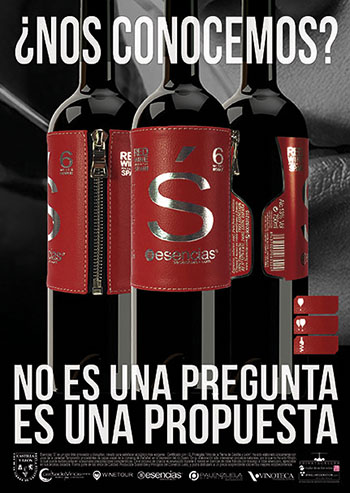
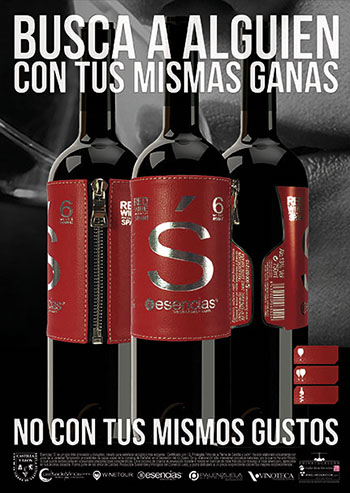
Data sheet.
Pio Cesare Ornato Nebbiolo 75 cl.
Red wine. Pio Cesare. Ornato. D.O.C.G. Barolo. Piemonte. Italy. Nebbiolo. Bottle. 75 cl..
| Variety | |
| Country of origin |  Italy. Italy. |
| Region of origin |  Piemonte. Piemonte. |
| Appellation of origin |  D.O.C.G. Barolo. D.O.C.G. Barolo. |
| Vintage / Harvest | Currently marketed by the producer. |
| Format | Bottle. |
| Capacity | 75 cl. |
| Alcohol content | 14.5% Vol. |
| Parker TWA Score | 95 Points. |
| Visual tasting note | Carmine color, Blue, Great intensity, Thin ruby edge. |
| Olfactory tasting note | Red berries, Roasted chocolate, Native plants, Forest notes. |
| Tasting note | Well bred, Final sweet sensation, Fruity finish, Mild flavors. |
| Recommended pairing | Italian pasta, Barbecued red meat, Meals with mushroom sauces. |
| Consumption temperature | 16ºC - 18ºC. |
| Typology | Red wine. D.O.C.G. Barolo. |
| Producer | Pio Cesare. |
| Name | Ornato. |
| Weight | 1.500 gr. (1,5 Kg.). |
| Product reference | WAN4559523 |
| Actual price | 109,95 € . This product is currently not available. |
| Please keep in mind | The information provided and referred to the product features and details has been provided by the expert, manufacturer or producer or published on the official sites. In no case can it be considered as assessment made by our team, unless expressly stated otherwise. We suggest you to refer to the comments and reviews posted by our customers and users to expand and contrast this information. |
| Misreading | Our team provides this information and details in ESPAÑOL language. If you browse in another language note that the information contained may have been translated from the original language through an automated real-time process that has not been supervised by our human team. In case of doubt, misunderstanding or misreading about the content of this information you should refer to the original version of this page or contact our customer service team. |
| Product image | The product image or its label is only relevant for graphic purposes, so it may not match the identification of the vintage or other features and details of the product for sale. This product is provided in the conditions and format in which it is marketed at the current time. This product is not identified or supplied in a specific vintage. The product image and label may not match the vintage identification or other characteristics and details of the product for sale. |
| Country of origin | Spain. This product is shipped from Spain. |
| (UE)401/2010 Certification | Denominazione di Origine Controllata e Garantita (D.O.C.G.) D.O.C.G. Barolo. |
| Production region | The production region of D.O.C.G. Barolo is located in La provincia de Cuneo, en la región de Piemonte, Italia. |
| Storage position | Lateral position, horizontal bottle. |
| Storage temperature | Store at a constant temperature between 10-17ºC. Humidity should be constant around 60-80%. |
| Recommendations | Keep preferably away from light. |
| Accessories | This product is provided in the conditions and format in which it is marketed at the current time. In cases where the product includes an additional packaging, box and/or case, These accessories will be included in the shipment as long as they comply with the dimensions of the special packaging adapted and approved for the transport of beverages. In general, the images of the products that we publish on our website are only relevant for graphic purposes. The images do not show other accessories such as additional packaging (box, case, etc.) or promotional elements that may occasionally be included by the manufacturer along with the product. If you wish, we can inform you about the additional packaging, elements and accessories included with the product at the current time. |
| Legal Notice | It is against the law to sell or supply alcohol to, or to obtain alcohol on behalf of a person under the age of 18 years. If you are not more than 18 years old, you must leave this website. |
| Consumption | It is recommended to drink in moderation and demonstrate a responsible consumption of alcoholic beverages. |
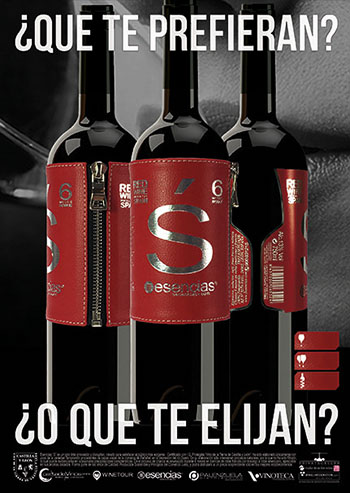
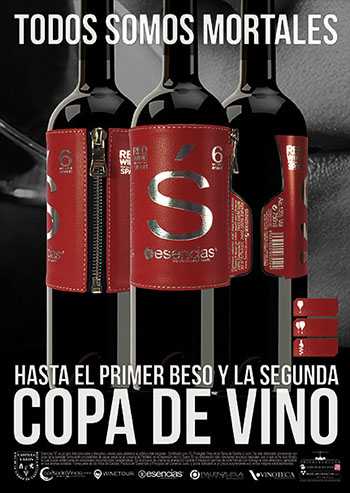
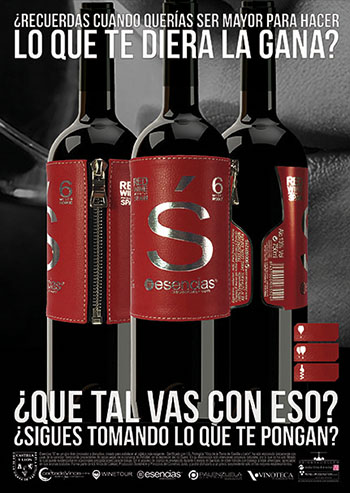
 France
France Argentina
Argentina United States
United States Australia
Australia Portugal
Portugal Chile
Chile New Zealand
New Zealand South Africa
South Africa



 Germany
Germany Austria
Austria



 Tokaj-Hegyalja
Tokaj-Hegyalja





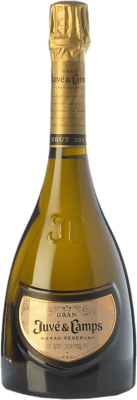
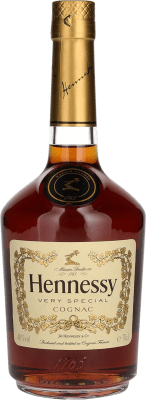


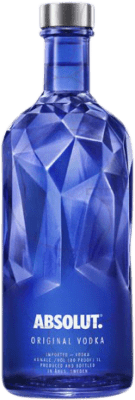






















 Language English
Language English






































